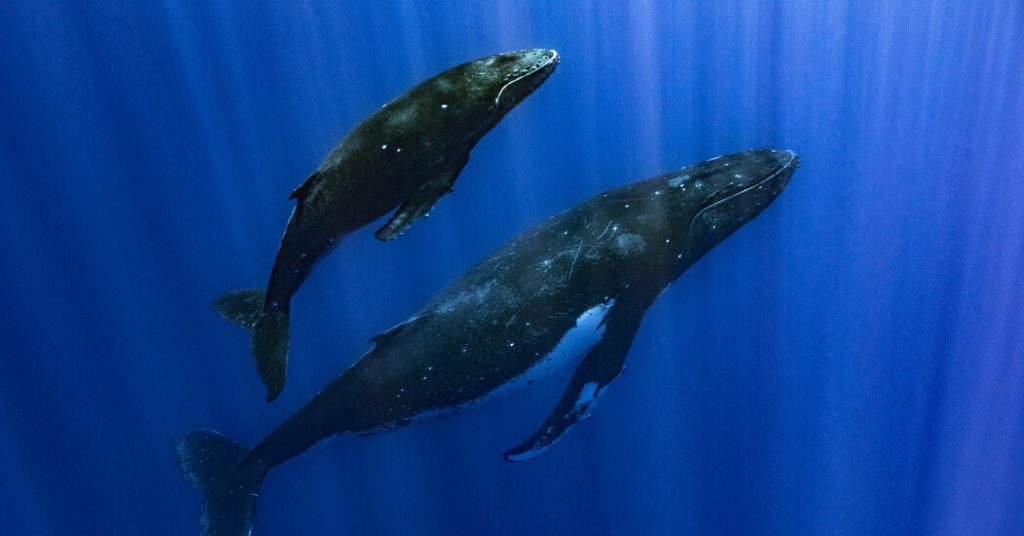Whales hold a significant place in the culture and traditions of many Indigenous groups across Polynesia, including the Māori, who call them tohorā. They believe that whales guided their ancestors across the Pacific Ocean and consider themselves guardians of these majestic creatures. Recently, Indigenous leaders from New Zealand, Tahiti, and the Cook Islands signed a historic treaty recognizing whales as legal persons. This move is intended to pressure national governments to provide greater protections for whales, as conservationists believe it will lead to positive conservation outcomes.
The treaty, known as He Whakaputanga Moana, or “declaration for the ocean,” was signed on the island of Rarotonga in a ceremonial event attended by prominent Indigenous leaders, including the Māori king. The Māori king emphasized the importance of protecting whales, referring to them as treasures and expressing the significance of the treaty in safeguarding these magnificent creatures. The treaty signifies a collective effort by Indigenous groups to restore whale populations and protect their natural habitat.
Whales are important to Māori and other Indigenous groups for both cultural and practical reasons. They believe that their ancestry is interconnected with whales and that these creatures played a vital role in developing the Māori system of navigation. Without whales, the Māori may not have been able to navigate the vast expanse of the Pacific Ocean and discover various islands. Therefore, whales are seen as essential to their cultural heritage and survival.
While some protection exists for whales in the Southern Ocean Whale Sanctuary, where commercial whaling is banned, there is no formal legislation in place to safeguard whales in the Pacific region. The treaty signed by Indigenous leaders aims to initiate discussions with governments in New Zealand, the Cook Islands, Tahiti, Tonga, and other Polynesian countries to develop a legal framework for enforcing whale protections. Conservation efforts are crucial to mitigate threats such as climate change and ship strikes that endanger whale populations.
Conservationists and scientists are working on implementing measures to monitor and protect whales in the Pacific Ocean. Modern technology, including remote sensors and acoustics, can assist in tracking whale movements underwater. Legislation based on principles of monitoring, penalties for harm to whales, and even whale insurance is being considered, with a proposed $100 million fund to support the initiative. The concept of recognizing whales as legal persons would come with certain rights and responsibilities, including remedies for harm caused to whales.
The economic value of whales is also being discussed in relation to conservation efforts. Researchers estimate that a single whale, over its lifetime, could be worth approximately $2 million due to the carbon removal it provides from the atmosphere. Insurance companies may require ships to have monitoring or anti-collision devices to reduce the likelihood of ship strikes. The hope is that legal recognition of whales as persons will lead to increased protections and conservation efforts, ultimately benefiting both whale populations and the broader marine ecosystem.













